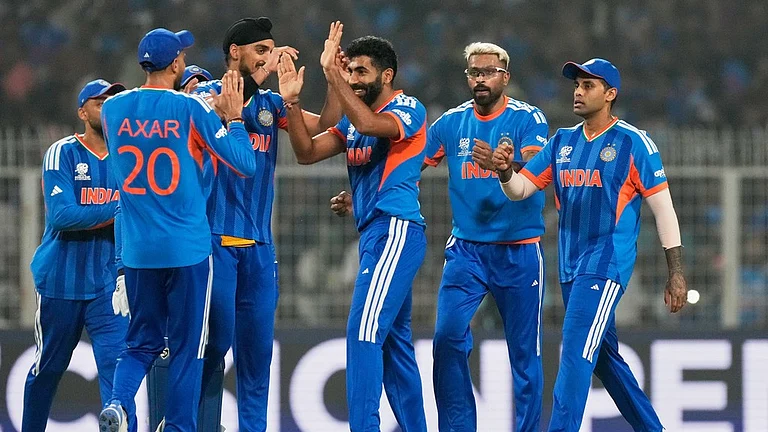On May 25, 2021 the GST Council held its 43rd meeting and constituted two Group of Ministers (“GoM”). The objective of the GoM was to deal with matters related to: i) capacity-based taxation and Special Composition Scheme in certain sectors on GST; and ii) casinos, race courses and online gaming. (More Sports News)
In recent developments, the GoM submitted its report on the above two issues to the Centre last week. The minutes of the meeting or the report itself is not yet in the public domain, comments by members of the GoM and the press have stated the following:
- The recommendations in the report propose to increase the rate of GST levied on online gaming companies from 18% to 28%; and
- The quantum on which GST will be levied is proposed to be 'gross gaming revenue' and not 'per transaction' or on 'every betting amount'.
While it seems that the discussion has been conclusive and a final report has been submitted for deliberation in the next GST council meeting, proposed changes may see many ramifications.
How is GST in Online Gaming Calculated
Currently In India, gaming platforms are required to pay GST as they qualify as ‘suppliers’ of services as per the GST Act.
For purposes of pay to play games, a part of the token fee paid by a user to a platform to use its services is typically deposited in an escrow account (prize pool), and a part is charged by the platform as a service fee or platform fee by the operator (gross gaming revenue or GGR).
The prize pool is transferred to winners' accounts on winning a game.
Currently, GST is levied on the GGR at the rate of 18%.
Powers of GST Council
The GST council derives its powers from Article 279 (1) of the Constitution. It includes the Union Finance Minister as its chairperson and Union Minters of State, in-charge of Revenue of finance and the Minister In-charge of finance or taxation or any other Minister nominated by each State Government as its members.
Article 279 A (4) of the Constitution gives powers to the GST Council to make recommendations to the state and the union on essential issues related to GST.
While successive office memorandums were published with regards to the change in taxation for online gaming, none lay down the details of the change in percentage or the appropriate quantum.
Furthermore, the speculations circulating in the news also do not clearly define exactly how and where the increment of the tax rate will be applied in the broad faceted gaming industry.
Impact and Constitutionality
If one were to take into consideration the recommendations of the GST council as per speculations and reports, an increase in the GST rate by 10% for online games, essentially puts skill-based, pay-to-play games in the same tax slab as that of lottery and horse and racing.
Moreover, in such a scenario the burden of payment of the GST ultimately ends up being on the user. To tax skill-based gamers the same way as lottery players have never been the intent of any jurisprudence around gaming.
In terms of implementation and affectation, to enforce whatever the recommendations will be, certain necessary amendment(s) shall be required to be carried out in the GST Act.
Currently as per Schedule III(6), ‘actionable claims other than lottery, betting and gambling are neither supply of goods or services.’
It means activities relating to only; lottery, betting and gambling are subject to GST and except for these three, no actionable claim will be covered under GST under schedule III.
Pay to play online skill games do not operate on similar factors as lottery betting and gambling, which might require an amendment to the Act for an exemption to ‘skill games.’
At a time when we have seen a series of legislations and amendments to the Police Act of states such as Kerela, Tamil Nadu and Karnataka and their subsequent constitutionality challenges, over the last year courts have repeatedly adjudicated that skill-based games must not be treated the same way as lottery /betting and horse racing.
Having said that, the recent decision of the Supreme Court in the Mohit Minerals case must also be considered while assessing the impact of these recommendations.
Even if the recommendations were to be assessed, the enactment of the same seems unlikely at this moment. Supreme Court on Thursday held that, recommendations made by the GST Council are not ‘binding’ on the Centre or states, and have only persuasive value.
Way Forward
Pivoted by COVID 19 and the inclusion of Esports in the Asian Games and the Olympics, the gaming industry has seen an increase in investment and participation by manifolds in the last year. Statista states the increase has been from 90 billion INR in 2020 and will reach 143 Billion by the end of this year.
India is a huge consumer of online gaming ranging from casual players to professional esports athletes, gaming developers, gaming companies and its employees.
Given that the globally accepted taxation rate of online games is between 8-15% and they are not regulated by Indian laws, the ultimate impact of this increase will lead to the burden of payment of the GST on platform users, which will only lead to a shift of users to more commercially viable platforms and thereby increasing participation of offshore entities.
One can only hope that the report and recommendations lead to the drafting of equitable laws which is the only intelligible move required to encourage this sector that often sees itself stuck in archaic debates and laws.
(Shivani Jha is a tech policy lawyer and views are personal)

















